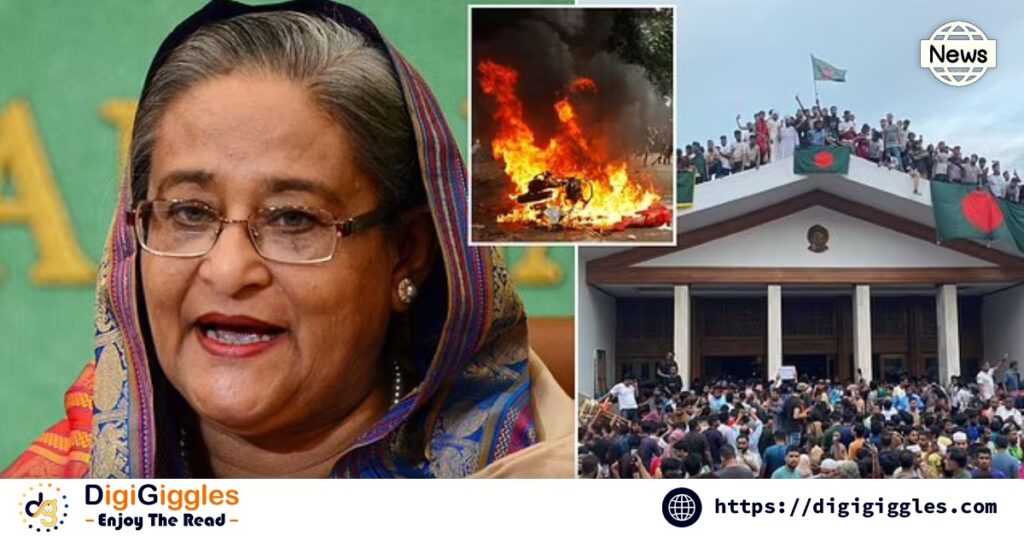
In an extraordinary twist of fate that mirrors the tragedies of ancient Greece, Bangladesh’s political landscape has been dramatically reshaped by the actions and ambitions of one of its most prominent leaders, Prime Minister Sheikh Hasina. Her tenure, marked by significant achievements and equally significant controversies, has reached a pivotal juncture that leaves the nation at a crossroads. Sheikh Hasina, the daughter of Bangladesh’s founding father Sheikh Mujibur Rahman, rose to power with a vision to transform Bangladesh into a prosperous and stable nation. Her leadership has seen substantial economic growth, improved infrastructure, and significant strides in women’s education and empowerment. Under her guidance, Bangladesh has become one of the fastest-growing economies in the world, often cited as a model for development.
However, Hasina’s administration has also been characterized by increasing authoritarianism. Critics accuse her of undermining democratic institutions and eroding civil liberties. The government’s crackdown on dissent, the media, and political opposition has drawn widespread condemnation both domestically and internationally. The controversial Digital Security Act has been particularly criticized for stifling free speech and enabling the arbitrary arrest of journalists and activists. The turning point came with the recent elections, which were marred by allegations of widespread rigging and voter suppression. Opposition parties and international observers reported numerous irregularities, with claims that the ruling Awami League party used state machinery to ensure their victory. This has led to widespread protests and a significant loss of public trust in the electoral process.
In a dramatic development, former Prime Minister Khaleda Zia, Hasina’s long-time rival and leader of the Bangladesh Nationalist Party (BNP), was released from prison after serving a sentence on corruption charges widely seen as politically motivated. Her release has galvanized the opposition, leading to a surge in anti-government sentiment and renewed calls for Hasina to step down. The political crisis reached its zenith when thousands of protesters took to the streets of Dhaka, demanding free and fair elections. The government’s heavy-handed response, involving the deployment of security forces and the use of tear gas and rubber bullets, only fueled the unrest. The situation has drawn comparisons to the uprisings that have swept through other parts of the world, as citizens demand greater accountability and democratic reforms.
In an attempt to quell the discontent, Hasina addressed the nation, stating, “I have always worked for the people of Bangladesh, and I will continue to do so. But we must maintain law and order for the sake of our country’s future.” Her words did little to pacify the protesters, who see her as the embodiment of the political establishment they are challenging. As Bangladesh navigates this tumultuous period, the parallels to Greek tragedy are striking. Hubris, often cited as the downfall of great leaders in classical literature, appears to have played a role in Hasina’s trajectory. Her initial successes have been overshadowed by allegations of corruption and authoritarianism, leading to a dramatic fall from grace.
The future of Bangladesh hangs in the balance, with many citizens yearning for genuine democratic reforms and a government that respects their rights and freedoms. The coming months will be crucial in determining whether the nation can move towards a more inclusive and transparent political system or whether it will continue down the path of authoritarian rule. This unfolding drama, reminiscent of the ancient Greek tragedies, serves as a poignant reminder of the delicate balance between power and accountability in the pursuit of national progress.